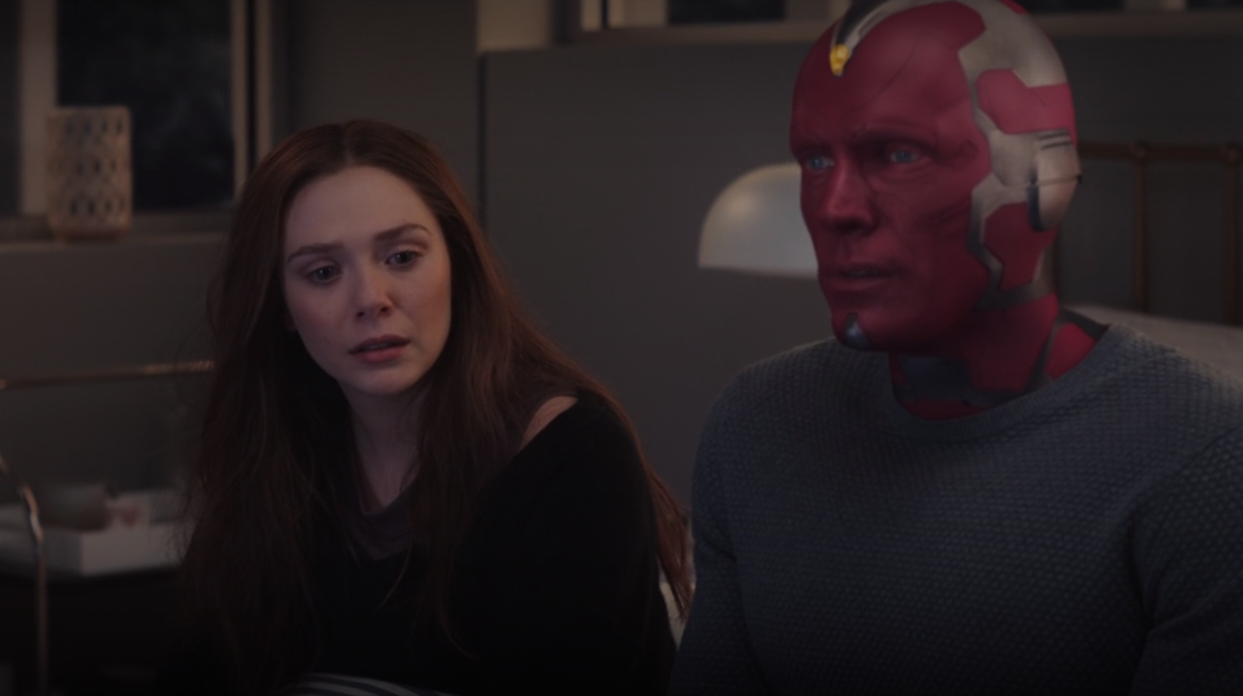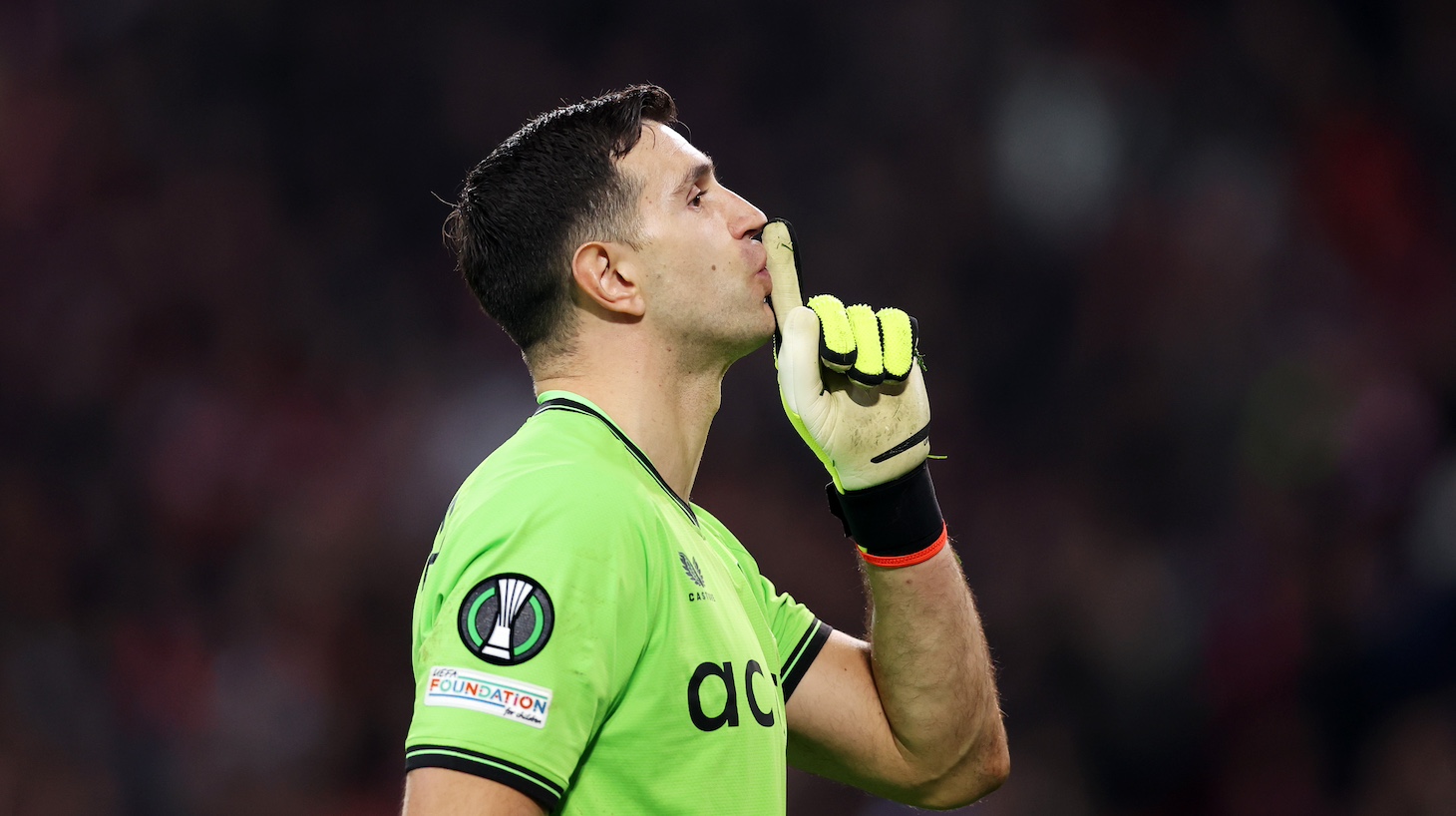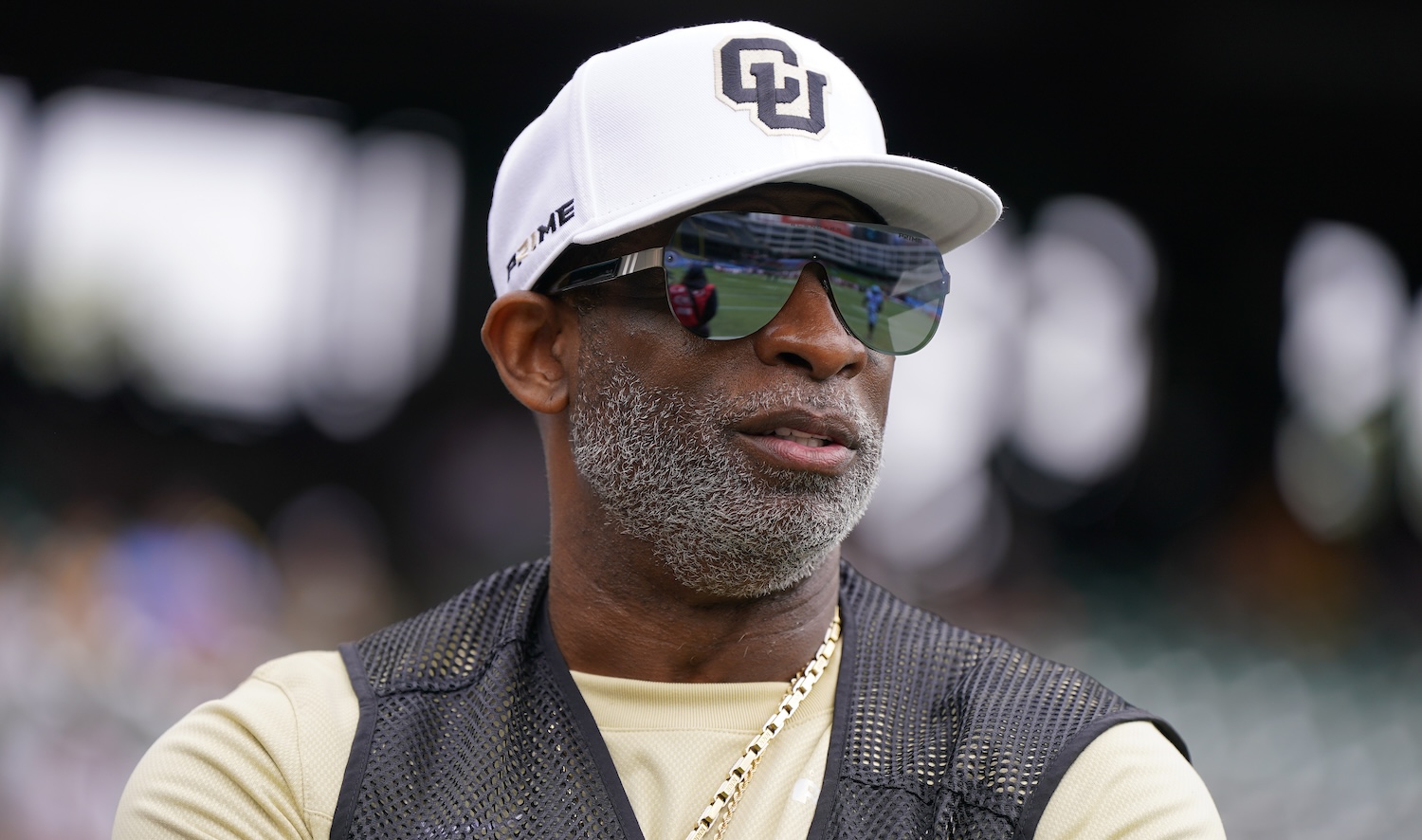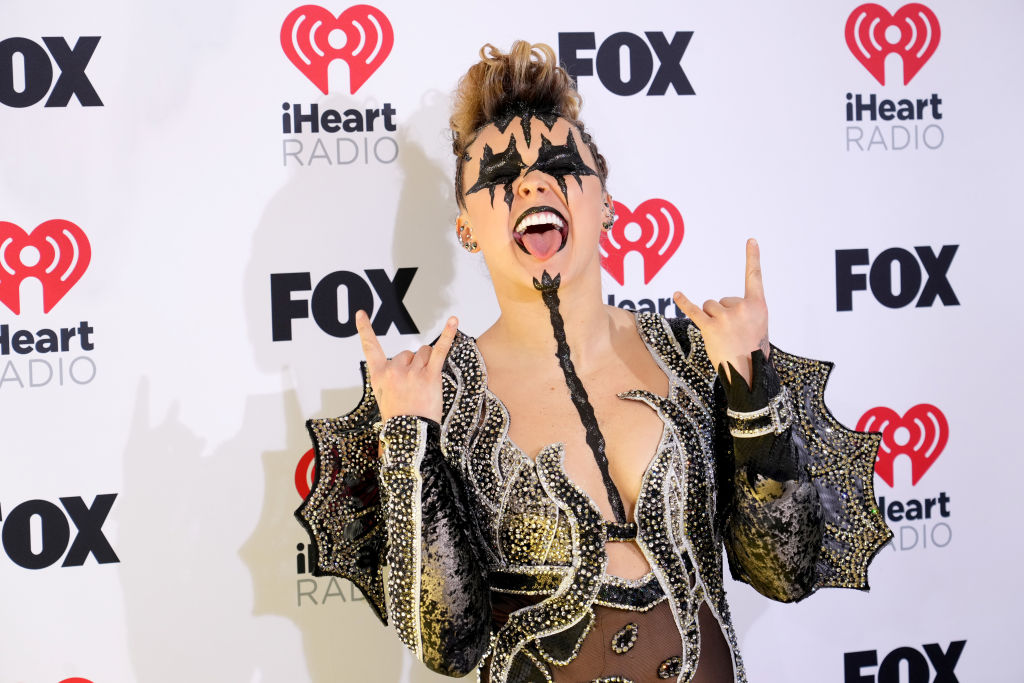‘WandaVision’ Was Nothing More Than A TV Show, And That’s Enough
4:49 PM EDT on March 15, 2021

After eight episodes that spawned more questions than answers, I was left with just one thing to wonder about after the finale of WandaVision: That's it? The ending was underwhelming on its face—just another bad CGI fight, same as it ever was—but perhaps doubly so because it felt like the show appeared to be building up to some momentous shift to the Marvel Cinematic Universe, Which Now Includes Television, thanks to Disney+ and its quest to be the one streaming system to rule them all.
Fans were also expecting something, anything, to change during the nine-episode run of WandaVision, and the possibilities seemed endless thanks to Wanda's powers. I'll admit I was in that boat, and only got further on that boat as the show went on. Would we see the X-Men? Is this how the multiverse gets set up for the next Dr. Strange movie? Will there be some other unbelievable comic book nonsense introduced? The answer appears to be a resounding no, and some people are not pleased.
Is this the show's fault, though? Now that it has concluded, it appears that WandaVision was just ... a television show. An uneven show—weak in its bookends but exciting in its middle part—but a show nonetheless. Its biggest strength wasn't in introducing new elements to an already bloated film franchise, but rather prioritizing a self-contained story and the acting that went with it. WandaVision's focus, beyond the gimmicks of the sitcom settings or whatever it meant for shows and movies coming soon, was on one of its titular characters' trauma. In the realm of the MCU, there probably isn't a character more in need of therapy than Wanda Maximoff. To recap: she saw her brother Pietro shot to death in Avengers: Age of Ultron, accidentally killed a bunch of civilians in Captain America: Civil War, and then killed her lover to save the world in Avengers: Infinity War, only for that sacrifice to be undone and for Vision to die again in vain.
WandaVision, therefore, had to contemplate how its heroine would cope with all that trauma. It's a decision that fit its role as a television show, rather than a two-hour, overcrowded installment into the MCU film canon. WandaVision took its time to delve into Wanda's struggles with the tragedy of her past and, to its credit, in that it did a fantastic job, buoyed by wonderful performances by Elizabeth Olsen and Paul Bettany. Those two actors had been mostly sidelined in the main MCU properties, with Olsen doing more work in the field of bad accents than anyone before and Bettany doing robotic exposition. Giving them nine episodes to stretch their legs paid off in spades.
Bettany was fantastic in the sitcom episodes, playing Vision's human self with a skittish British energy, before stepping into a more somber and effective performance as the heart of the show in the back half of the season. He also nailed the biggest line on the show, though the discourse around "But what is grief, if not love persevering?" has been mostly intolerable.
The show belonged to Olsen, though. Despite playing a character who has had little important screen-time in five movies prior to WandaVision, she sells Wanda's despair brilliantly throughout. The eighth episode, which dug through her history of horrifying pain, was a particular highlight. Her accents even got better, particularly when she was playing the "TV housewife" roles in the first few episodes; that mid-Atlantic non-accent is not easy to nail down, but she did it flawlessly. It's a shame that her big emotional moments in the finale were all in the service of typical Marvel fight bullshit, because she earned something better than that to send her off.
And yes, it must be repeated that the final episode was a disappointment even outside of whatever it meant for the MCU. WandaVision had been a show that took its time and enjoyed being off-center from the Big Studio formula, so to finish it with Olsen and (the equally wonderful) Kathryn Hahn flying around shooting make-believe orbs at each other while the sky turned violently red was a big bummer. (Don't get me started on how bad the Vision vs. White Vision fight was, though at least that had a fun ending with the whole Ship of Theseus problem.) Even with all that, though, this was still the ending that the show had worked towards: Wanda releasing all the victims of her trauma and escaping to figure out how to be OK with still being alive. Why was everyone so angry, then, that it wasn't more than that?
I blame Evan Peters for the disappointment. Well, not Peters himself, who was a fine addition to the show on his own merit, his manic energy playing well as fake-Pietro, sent to the world of Westview by Hahn's Agnes/Agatha Harkness to torture Wanda. I blame the decision for using Peters as a bit of stunt casting that seemed to wink at the wildness to come. See, Peters played the character of Quicksilver in the Fox-helmed and tragically uneven X-Men movies.
Meanwhile, at around the same time those movies surfaced, Aaron Taylor-Johnson played the same character, with a terrible Eastern European accent, in the MCU, before the character's death in Age of Ultron. (Side note: WandaVision made me think about that movie more than ever before. I did not appreciate that.) By including Peters in the show, and having him play the same character he did in a different studio's franchise, Marvel seemed to be ushering in some form of connectivity with the X-Men, an idea made tantalizingly real since Disney absorbed 21st Century Fox and acquired the rights to everyone's favorite mutants.
That was decidedly not the case, even though Olsen herself reportedly thought that as well. In episode eight, it's revealed that Peters was just another torture device, a normal dude named Ralph who got mind-controlled into thinking he was Wanda's brother. It's a reveal that the show earned, given that it had hid Agatha's true nature as the Big Bad of the show—this, despite Hahn's prominence in the credits leading fans to believe she was, in fact, Agatha, and not a similarly mind-controlled Agnes—for almost seven entire episodes. In a vacuum, it was a fun twist, and just one more knife driven into the traumatic side of Wanda as the show neared its own endgame.
Unfortunately, the MCU is not and has never been suited to having fans who take things at face value. Every frame of every movie has been dissected and analyzed for possible Easter eggs, so dropping one as bold as Peters into the mix set off a veritable fireworks factory of fan theories. Would Magneto, Wanda's comic book dad in some iterations, show up? He did not, and probably will not for some time, because the other thing that the MCU has been is patient and efficient, almost to a fault. Would Marvel really drop the X-Men into the first release of its Phase 4 project, which aims to reset the entirety of the franchise after the events of Avengers: Endgame, which seem to mark the end of Robert Downey Jr. and Chris Evans, the Iron Man and Captain America leads that carried the franchise for over a decade? Logic would say no, but logic left the MCU fanbase long ago.
Similarly, the existence of Doctor Strange in the Multiverse of Madness in the Marvel movie pipeline seemed to point at another direction for where WandaVision could go. Aside from a passing mention to the titular character's "Sorcerer Supreme" role, though, there was nothing—short of Wanda employing some similar techniques to Dr. Strange in the post-credits scene—to link to that movie, even though Elizabeth Olsen has already been confirmed as part of it.
That's not to say that there aren't crumbs to speculate over following WandaVision. Monica Rambeau now has powers similar to her comic book persona of Spectrum, and is apparently going to space just in time for Captain Marvel 2. Agatha wasn't killed and will likely pop up again at some point. White Vision now has normal Vision's memories and is off ... somewhere, so he'll be back, eventually. There was more than enough here to kick off Marvel's next phase of movies and shows.
If there's any letdown from WandaVision, it's that fan expectations did not meet reality. That's not the show's fault, and certainly not its biggest flaw. For the bulk of its duration, the show stuck to its guns and its purpose. In diving deep into Wanda's trauma, it hit on a different emotional journey than any previous MCU property has to date, and it used the framework of TV to ground characters who often spend time shooting through the skies. Even the flawed, CGI-laden finale did little to connect the show back to its parent franchise. As a creative decision, it was a brilliant way to make the show its own entity, refreshing in its general disconnect from the future of the MCU juggernaut. The weight of an entire franchise was placed on the shoulders of WandaVision, but the show just brushed it off to do its own weird thing. Sometimes, a show is just a show, good and bad, boring or thrilling. And that's alright.
If you liked this blog, please share it! Your referrals help Defector reach new readers, and those new readers always get a few free blogs before encountering our paywall.
Staff Writer
Read More:
Stay in touch
Sign up for our free newsletter




